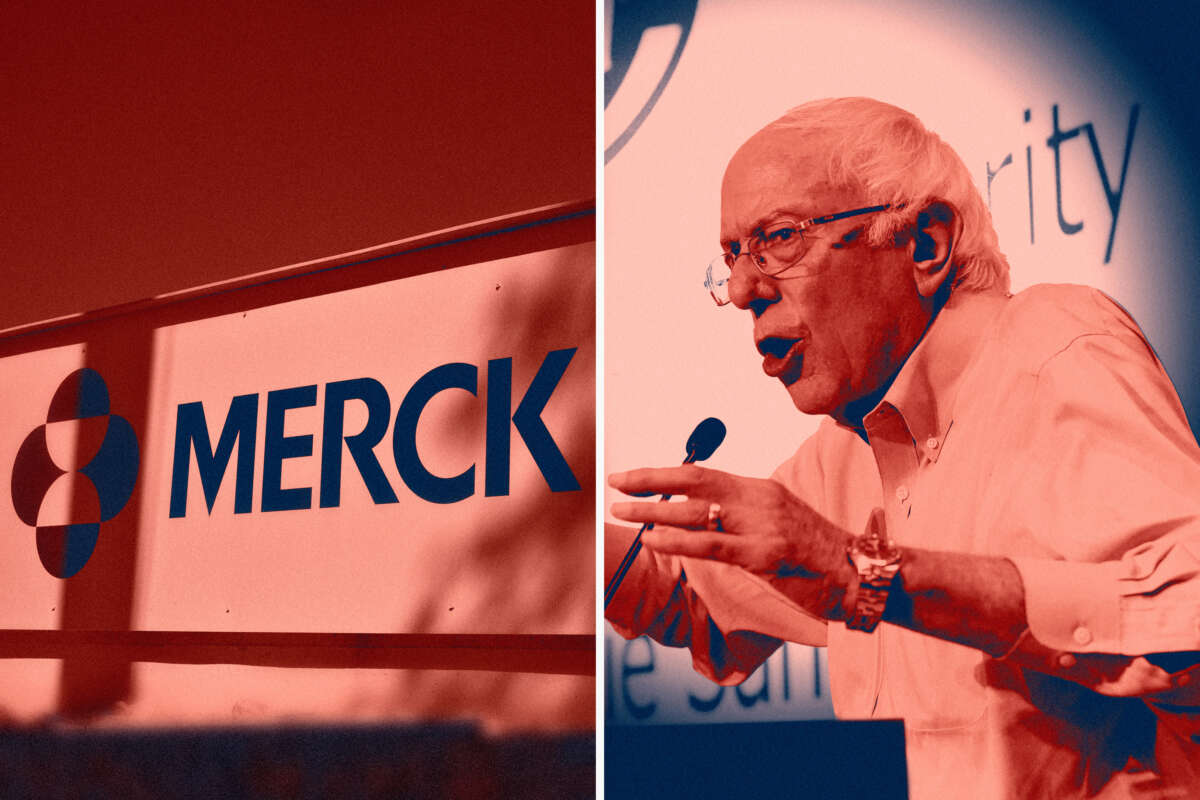Sen. Elizabeth Warren (D-Massachusetts) and Bernie Sanders (I-Vermont) have raised concerns that pharmaceutical giant Merck’s request to extend the patent for a top cancer drug could represent another move from Big Pharma to abuse the patent system and maintain a monopoly on a life-saving drug.
The lawmakers are urging the U.S. Patent and Trademark Office to scrutinize Merck’s application for new patents on cancer drug Keytruda, one of the best-selling cancer drugs worldwide. If the requests are granted, Merck would maintain its monopoly on the drug through at least 2036, allowing it to continue charging over $165,000 annually for the drug at its non-discounted price.
“If the company is successful, it will result in billions of dollars in new profits from this lifesaving drug — at extraordinary expense to patients and taxpayers,” the lawmakers wrote in a letter, which was also signed by Representatives Pramila Jayapal (D-Washington) and Katie Porter (D-California). “These efforts by Merck appear to be part of a long-standing pattern of drug manufacturers’ abuse of the patent system.”
The company is seeking to extend its control over the drug by slightly changing its formula, creating a version that can be administered via injection under the skin.
But, as the lawmakers pointed out, experts have raised questions about the utility of this form of delivery, skeptical that the new formula delivers any benefits to patients while allowing Merck to rake in profits. As such, they say that Merck’s request could represent anti-competitive behavior that seeks to abuse the patent system in order to pad profits.
Keytruda is Merck’s top selling drug. In 2022, the company made $21 billion from sales of the drug, a growth of 22 percent over 2021 sales. Overall, the price of the drug has increased by nearly 150 percent since it was introduced five years ago, largely because of the monopoly that Merck maintains over the drug, the lawmakers say.
“[I]t is not at all clear that Merck is doing anything other than extending its monopoly power over the drug,” they wrote. “This approach — and Merck’s use of dozens of patents to fend off Keytruda competitors — appear to be an example of the anti-competitive business practices, including double-patenting, patent thicketing, product hopping, and evergreening, that we have long been concerned about.”
The tactics mentioned by the lawmakers are common within the pharmaceutical industry. Evergreening, for instance, or making small tweaks to a drug to maintain a patented status, is responsible for a huge amount of activity within pharmaceutical patenting at large; a 2018 study found that 78 percent of drug patents given out between 2005 and 2015 were for existing drugs.
For as long as a pharmaceutical corporation can come up with ways to change a drug, it can prevent other companies from being able to make the same drug under a generic brand, allowing them to charge whatever they choose; a drug monopoly, which can occur for various reasons, is what allowed Martin Shkreli’s company to raise the price of a 60-year old drug called Daraprim, meant to treat parasitic infections, from $13.50 to $750 overnight in 2015, for instance.
Vast vaccine inequities during the COVID-19 pandemic have raised questions about the morality of intellectual property protections and patents for drugs altogether. Vaccine patents and pharmaceutical companies’ refusal to share their formulas with governments or other companies has resulted in countless excess COVID deaths around the world, experts have said.
Meanwhile, high drug and health care prices are causing Americans to go into deep medical debt, put off seeking medical care, and ration doses of drugs; these prices contribute to the fact that the U.S. has the worst health outcomes of any wealthy country, despite spending the most on health care by far.
We have 10 days to raise $50,000 — we’re counting on your support!
For those who care about justice, liberation and even the very survival of our species, we must remember our power to take action.
We won’t pretend it’s the only thing you can or should do, but one small step is to pitch in to support Truthout — as one of the last remaining truly independent, nonprofit, reader-funded news platforms, your gift will help keep the facts flowing freely.
